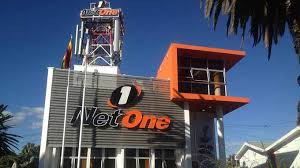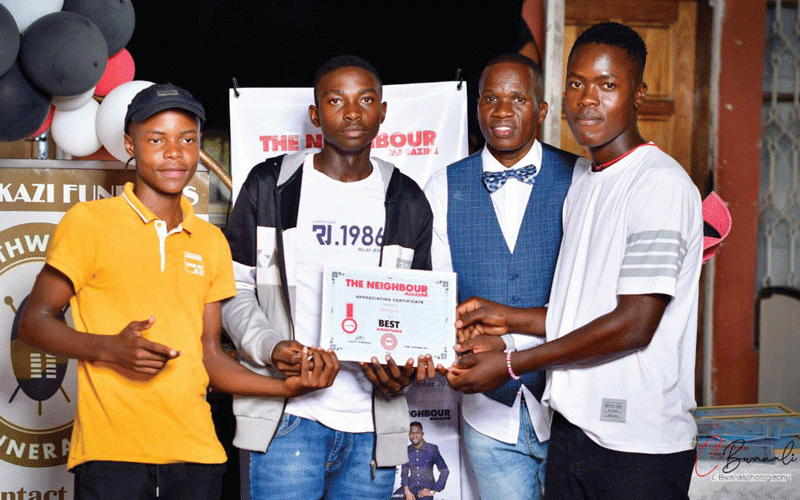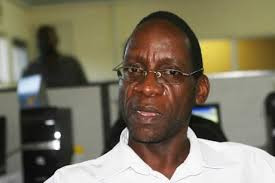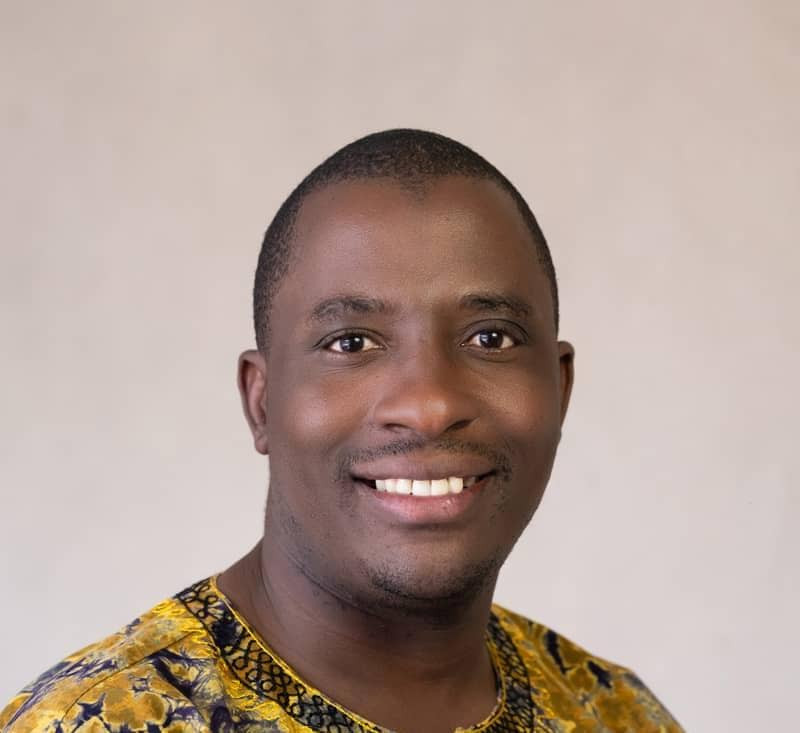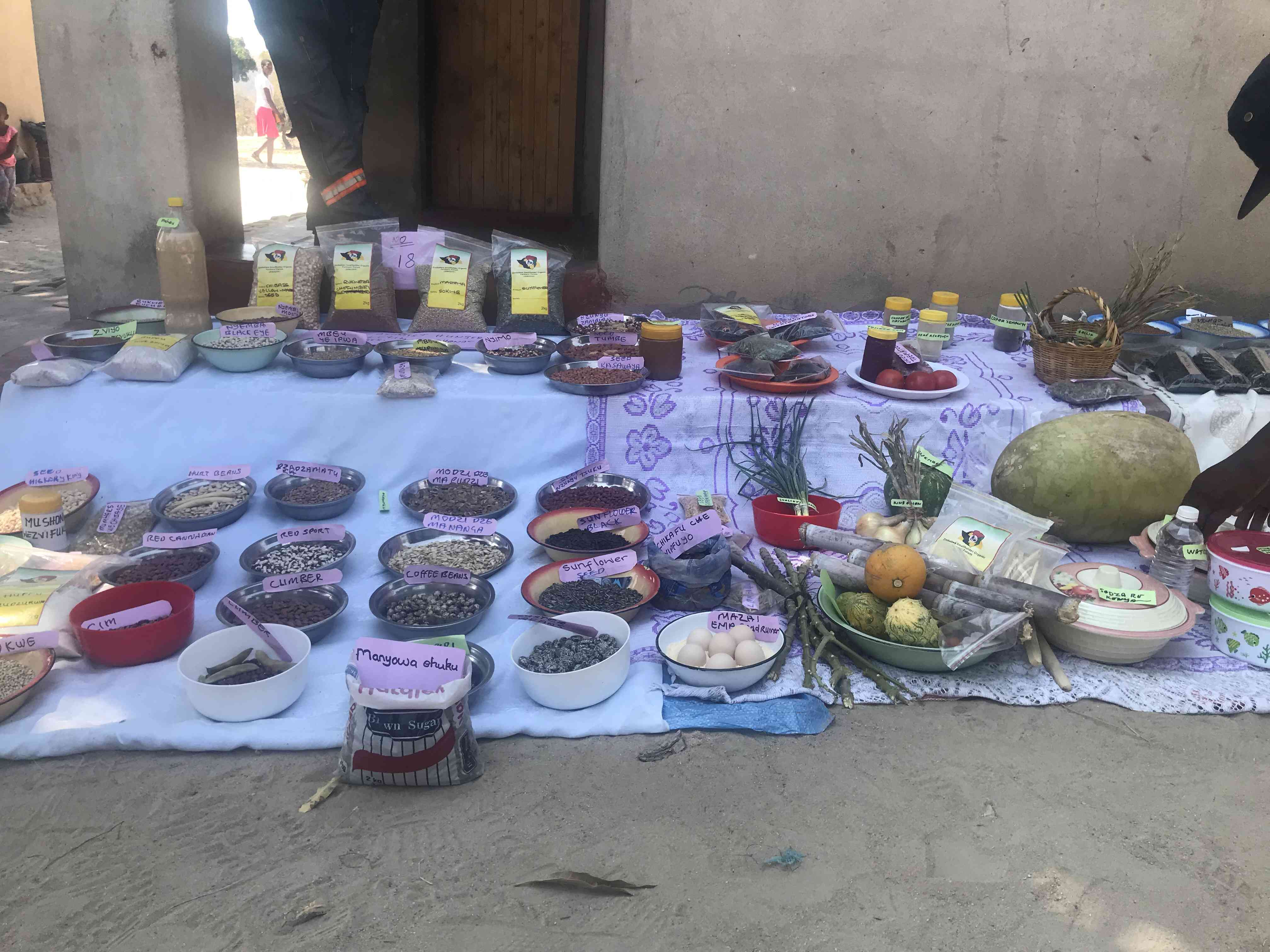
As climate change wreaks havoc, leaving communities starving, previously neglected indigenous small grains threatened, are now being extensively promoted because of their resilience to weather shocks such as drought.
Such small seeds require fewer of the inputs that are needed by commercial hybrid maize.
Zimbabwe Smallholder Organic Farmers Forum (ZIMSOFF) last week gathered farmers from Mutoko and Beatrice to showcase their seed banks and on how they have adapted and fought hunger through agroecology practices.
The winners are going to compete with other farmers at the National seed fair in Harare on September 13, 2024.
Over 50 ZIMSOFF farmers from these areas competed, and the winners will oing showcase their excellence in seed banks at the nationals next month.
Ekenia Chikunichawa (78) from Chikunichawa in Beatrice, smiled and ululated as she received her award for being number one in her district.
“I was introduced into agroecology farming by ZIMSOFF in 2015," she said.
“These grains that I have been growing have earned me money, but the important part is the availability for food to feed my family.
- COP26 a washout? Don’t lose hope – here’s why
- Out & about: Bright sheds light on Vic Falls Carnival
- COP26 a washout? Don’t lose hope – here’s why
- Out & about: Bright sheds light on Vic Falls Carnival
Keep Reading
"We no longer sleep on empty stomachs...I have also managed to invite other local residents to join the program and fight hunger and climate change."
Ekenia is also one of the females that have been championing climate change mitigation programs organized by Zimsoff in the area through developing seed banks which have become handy in times of need.
Seed banks have become one of the latest trends to combat climate change impacts, and for women like Ekenia, it has been a major breakthrough that has resulted in her making money and providing for her family.
Seed banks are facilities that assist farmers, communities and households that are affected by climate change to access locally adapted crop varieties, and enhance related indigenous knowledge and skills in plant management, including seed selection and distribution.
Climate Change has left many women vulnerable to broken marriages as men migrate looking for greener pastures, while the girl child has been subjected to early child marriages and teen pregnancies.
Brenda Muchaiwa (35) who took the second place said:, “I came third place last year. I love farming I have even finished digging up my holes in my farm and I have already fed my manure, what left is rain to come.
“Zimsoff initiatives have equipped me with knowledge that the crops that we grow bring about variety of nutrients, since we no longer feed our soils with fertilizer’s but instead we use natural manures like cow dung, tree leaves and more, this however also leave our soils rich and healthy.”
“I spray my vegetables with locust’s powder;, we catch them then crush them, the powder from crushing is then kixed with water after then which we spray our plants.
“I ventured into farming through my parents, I would watch them grow crops, and I would ask for a small piece of land to also practice on my own, my children are now part of this initiative."
According to the Zimbabwe Conservation Agriculture Forum, seed banks are an important tool for promoting conservation agriculture practices by providing access to conserve agriculture friendly crop varieties.
It also encourages farmers to adopt practices that reduce soil degradation and promote soil fertility.
During their seed fare, farmers who had not made it to the top three were also rewarded to motivate them.
Agustine Muchanyenga (24), the youngest farmer in Beatrice who took position 14, said farming has helped him escape the peer pressure to indulge in alcohol and drug abuse.
“When I was growing up from where I am now, my parents would give me a small piece of land to grow anything that I wanted and everything that I harvested was mine, that was my reward," he explained.
"This motivated me to love farming and be eager to know more, look at me now I’ve also been selected in the top 15 farmer in my area.”
“I urge my fellow youths to come and join these initiatives...I’m happy today I learnt a lot from other farmers from the likes of preparing grass to feed our cows, and using leaves as compost."
The same event took place on Wednesday in Mutoko as ZIMSOFF farmers also competed for the top 3 spot to showcase their seed banks at the Nationals in Harare.
Maruvamoyo Katsande (61) who took first place in Mutoko, said climate change has wreaked havoc and left communities starving.
"But with the new way of farming, which is agroecology I managed to harvest five bags of mealie meal, thus the use of natural manures and not fertilizers are keeping us afloat and our soils healthy," he said.
"Before I was introduced to agroecology, harvesting was a word I would hear from radios, hunger was our middle name in our house hold."
Blessing kapawurukwa 46, who resides in Mutoko ward 4 In Nyabote village, echoed similar views.
"Climate change affected me to an extent that I did not harvest anything, and hunger struck me badly," she said.
Field officer for the Zimbabwe Small Organic Farmers Forum in the Northern Cluster Chapter Ngoni Chikowe during the seed fare said: ““The exchange of seeds is one of those things that we annually commemorate here.
"Climate change is affecting farmers, and most small-holder farmers, because we rely on rain-fed, dry-laid farming.
"So that's where we learned things like water conservation, water harvesting techniques, the conservation of traditional seeds, because the whole essence of agriculture is based on seeds.”
“Each year we are seeing new members coming in to join, and also the stakeholders are so supportive to the programme.
“It goes very well with the programme where the first lady is also advocating on the consumption of traditional foods."
Chikowe further added that Farmers from different clusters will be selected to represent their region's seed diversity at a national level, based on their performance in the SFO seed and food phase.
This event will also serve as an opportunity for farmers to exchange knowledge, seeds, and ideas, including identifying and recovering lost seed varieties, ultimately promoting food sovereignty.

